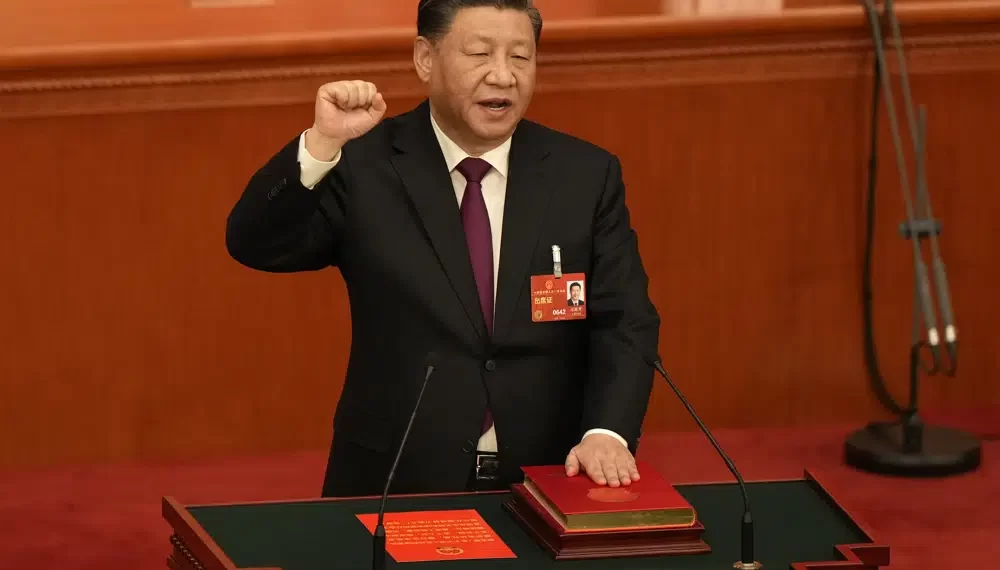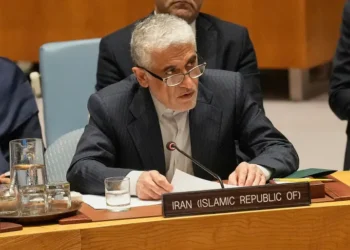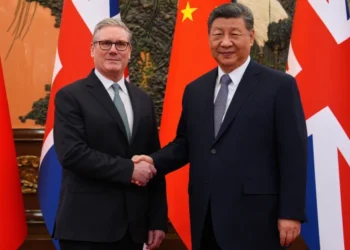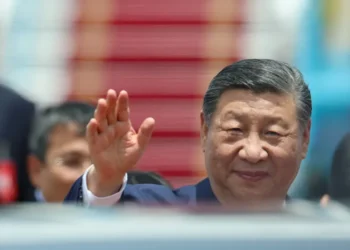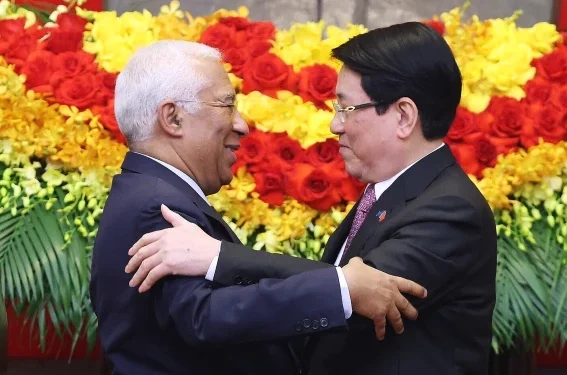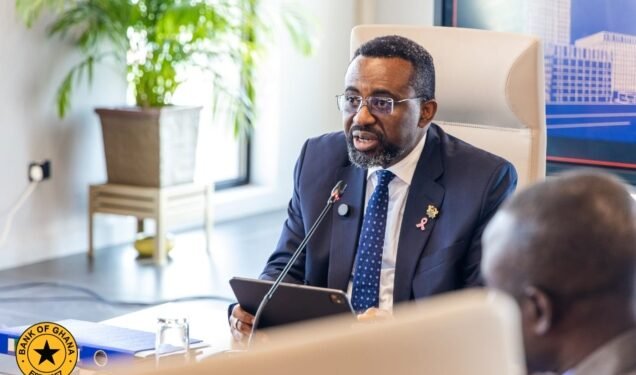Chinese leader Xi Jinping was awarded a third five-year term as the nation’s President on Friday, March 10, 2023, putting him on track to stay in power for life.
The endorsement of Xi’s appointment by the ceremonial National People’s Congress(NPC) was a foregone conclusion for a leader who has sidelined potential rivals and filled the top ranks of the ruling Communist Party with his supporters since taking power in 2012.
The vote for Xi was 2,952 to 0 by the NPC, members of which are appointed by the ruling party.
Xi had himself named to a third five-year term as party General Secretary in October, breaking a tradition under which Chinese leaders handed over power once in a decade.
A two-term limit on the figurehead presidency was removed from the Chinese constitution in 2018, prompting suggestions that Xi might stay in power for life.
No candidate lists were distributed. Xi and those awarded other posts were believed to have run unopposed.
The election process remains almost entirely covered in secrecy, apart from the process by which delegates to the congress placed four ballots into boxes placed around the vast auditorium of the Great Hall of the People.
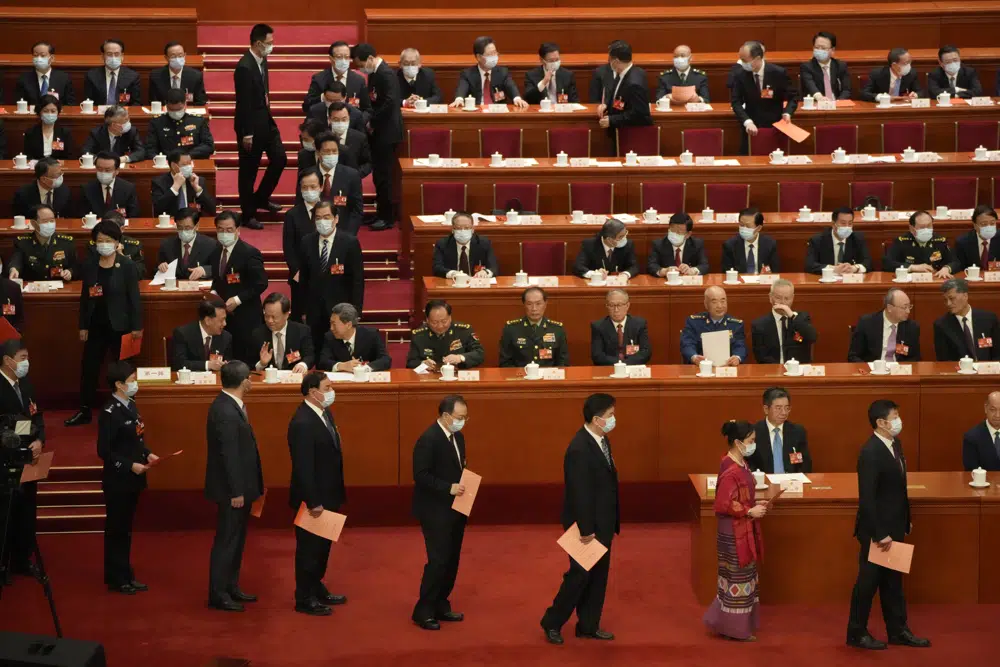
Xi was also unanimously named Commander of the 2 million-member People’s Liberation Army, a force that explicitly takes its orders from the party rather than the country.
In other voting, the party’s third-ranking official, Zhao Leji was named Head of the National People’s Congress. The vast majority of the body’s legislative work is headed by its Standing Committee, which meets year-round.
Former Shanghai party Boss and member of the last Politburo Standing Committee, Han Zheng was named to the largely ceremonial post of state Vice President.
Xi, Zhao and Han then took the oath of office with one hand on a copy of the Chinese constitution. The session also swore in 14 congress vice chairpersons.
Xi’s 3rd Term Underscores His Monopoly On Chinese Political Power

Xi’s new term and the appointment of loyalists to top posts underscores his near-total monopoly on Chinese political power, eliminating any potential opposition to his hyper-nationalistic agenda of building China into the top political, military and economic rival to the U.S.
Xi Jinping has solidified his rule as China reopens from his Zero-COVID policy that triggered anti-government protests.
Confirmation of his third term as President had been widely expected. The naming of a new Premier and various Ministers in the coming days is considered more important.
The new appointees are mostly expected to be Xi Jinping loyalists.
Second-ranked Li Quang is widely expected to take over as Premier, nominally in charge of the Cabinet and caretaker of the economy.

Li is best known for ruthlessly enforcing a brutal “zero-COVID” lockdown on Shanghai last spring as party Boss of the Chinese financial hub, proving his loyalty to Xi in the face of complaints from residents over their lack of access to food, medical care and basic services.
Former Head of the manufacturing powerhouse of Guangdong province, Li Xi has already been appointed to replace Zhao Leji as head of the Central Commission for Discipline Inspection.
The Congress is also expected to pass measures intensifying party control over national level government organs as part of Xi’s campaign of centralizing power under the party.
While six others serve with him on the Politburo Standing Committee, all have longstanding ties to Xi and can be counted on to see to his will on issues from party discipline to economic management.
The standing committee has only men and the 24-member Politburo, which has had only four female members since the 1990s, has no women after the departure of Vice Premier, Sun Chunlan.
READ ALSO: Massive Russian Missile Barrage Hits Targets Across Ukraine

